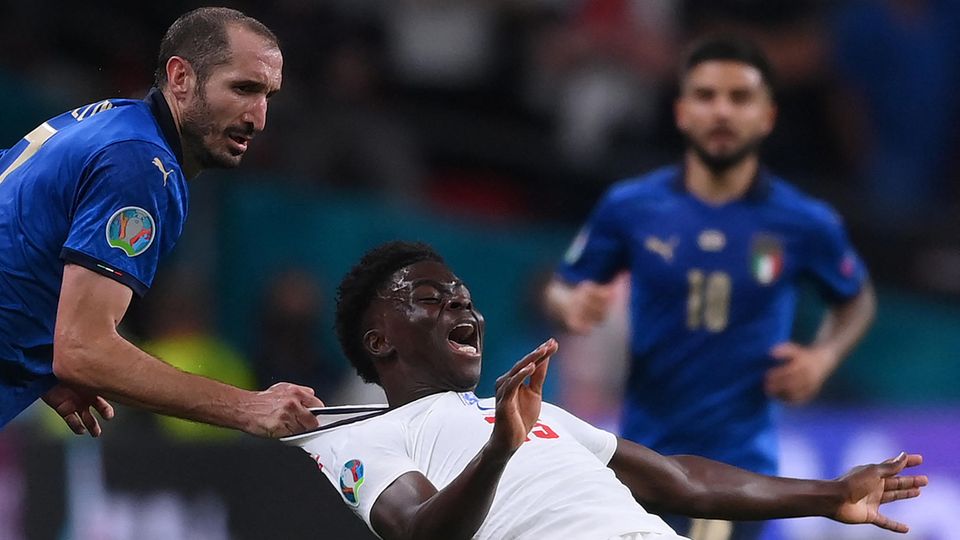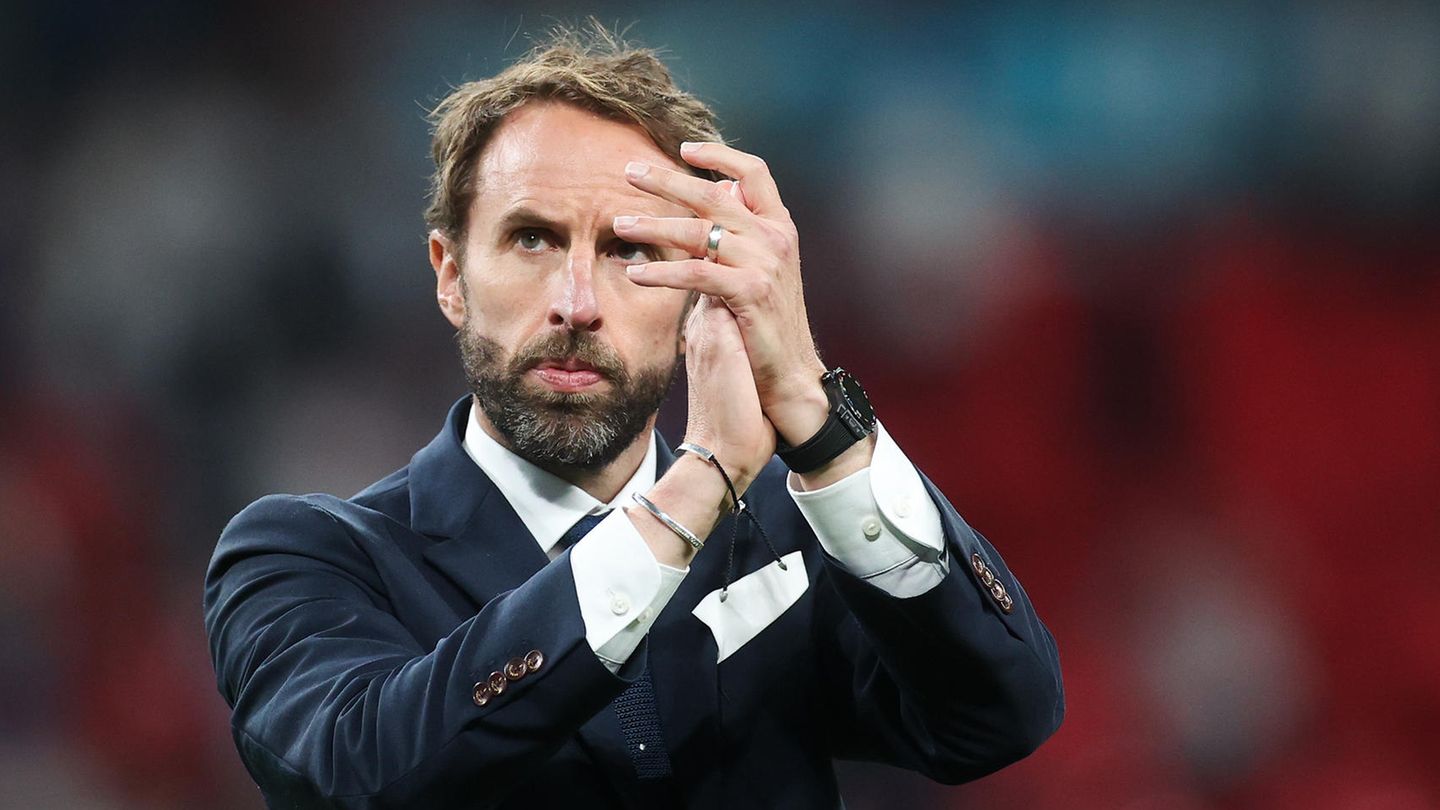opinion
It’s not the unlucky last penalty taker this time. This time it is the coach who gave England the next penalty drama. Gareth Southgate should have known better.
If it weren’t for the 1966 world champions, you might believe that there is only one way to immortalize yourself with the English national team: After a great fight, you have to miss a penalty shoot-out in the semifinals or final of a major tournament at the decisive moment. With that in mind, Gareth Southgate’s place is now cemented in the annals of the English Football Association. Because the 50-year-old has achieved this “feat”, which he has suffered so often and is dreaded on the island, twice: as a player and now also as a coach.
How could he, especially with the bitter experience of his own decisive miss in the 1996 European Championship semifinals at Wembley against Germany, place this responsibility on his youngest players, of all players? That in a production that is almost ready for a film?
Gareth Southgate: Failure staged ready for film
He left the super talents Marcus Rashford, 23, and Jadon Sancho, 21 – incomprehensible to many anyway – almost completely out of the competition during the entire tournament, only to switch them on at the very last, all-decisive moment and demand that they be in front of 67,000 Viewers to end a 55-year waiting period for another title for the proud football nation England. And that’s not all: After all was not lost despite the two misses, it was left to the youngest, Buyako Saka, 19, to keep England’s dream alive. In the history of football, bigger stars have failed in such a task.
It honors Gareth Southgate and shows greatness in defeat that he took England’s penalty debacle on his hat. Not a word of “lottery” or “bad luck”. He had chosen the penalty takers, he said, and he decided after the training impressions. But a penalty shootout after 120 grueling minutes and in front of tens of thousands of expectant fans cannot be simulated. Southgate knows that too, of course, and yet he found no other criterion for selecting the shooters. Has he been let down by established stars? The otherwise always brisk ManCity star Raheem Sterling was not among the top five shooters. Or had he already replaced players who would have accepted the responsibility? Either way: The former national defender paid bitter hard money as a national coach.

Not a good idea: with Catenaccio against Italy
But not just because of the coached penalty shoot-out. Because after Luke Shaw’s early goal, the English already had Italy where they wanted it – under pressure and (initially) without any means against the force that the “Three Lions” unfolded at the beginning of the game. That was when Southgate’s team showed that they had grown over the course of the tournament. Now would have been the opportunity to hit the sky-strikers of the “Squadra Azzurra” perhaps decisively and to drive away the eternal English check-specter of penalty shootouts. It took Italy a long time to find their way into the game, but Southgate didn’t know how to use the time to give their team a decisive boost.
It was also not a good idea to try more and more later to bring the valuable 1-0 over time against Italy with a kind of catenaccio. That was not only almost an insult to majesty against the inventors of the football bulwark, but had to take revenge at some point. And so it happened as it had to. After the 1-1 draw, the English team lacked the strength to avoid a penalty shoot-out in any case.
The lesson: no penalty shoot-outs
Avoiding such a shoot-out should have been much more important to Gareth Southgate. In view of the history of football, but above all because of his own experience. He didn’t succeed. Southgate must and will learn lessons from this. Should he stay in office, he will be lucky that the World Cup in Qatar will be due next year due to the Corona postponements. “I don’t want to stand up for anything longer than I should,” he said the day after: “The way I’m sitting here today, I want to lead the team to Qatar. This team is not at its peak yet.” If that also applies to their coach and the young stars grow from their traumatic experience, in 2022, as in the soccer song “Football’s coming home”, the end result could actually be: “No more need for dreaming”.
I have been working in the news industry for over 6 years, first as a reporter and now as an editor. I have covered politics extensively, and my work has appeared in major newspapers and online news outlets around the world. In addition to my writing, I also contribute regularly to 24 Hours World.




